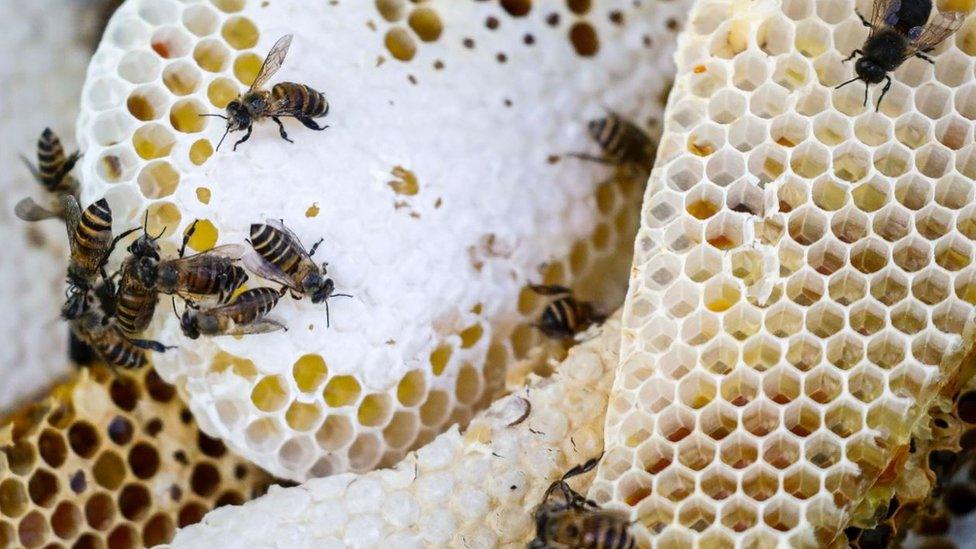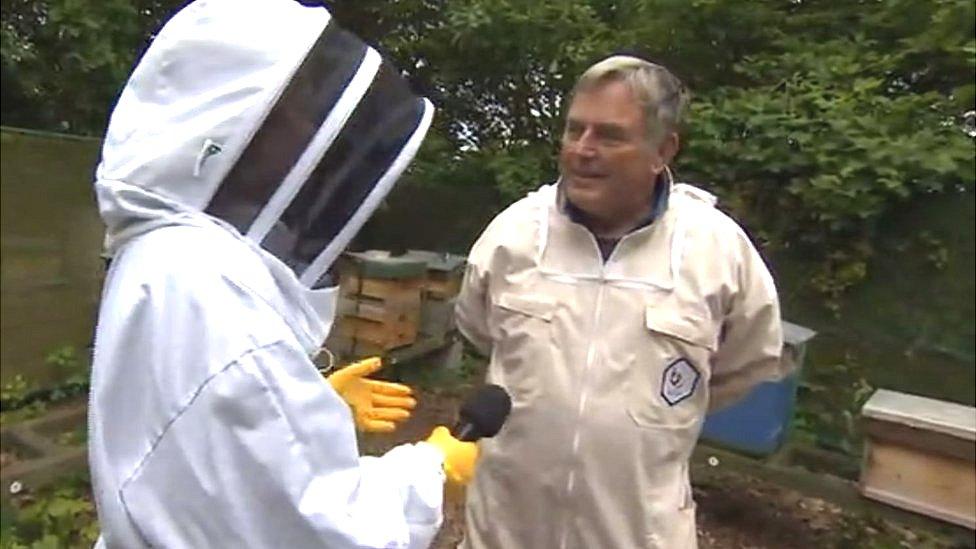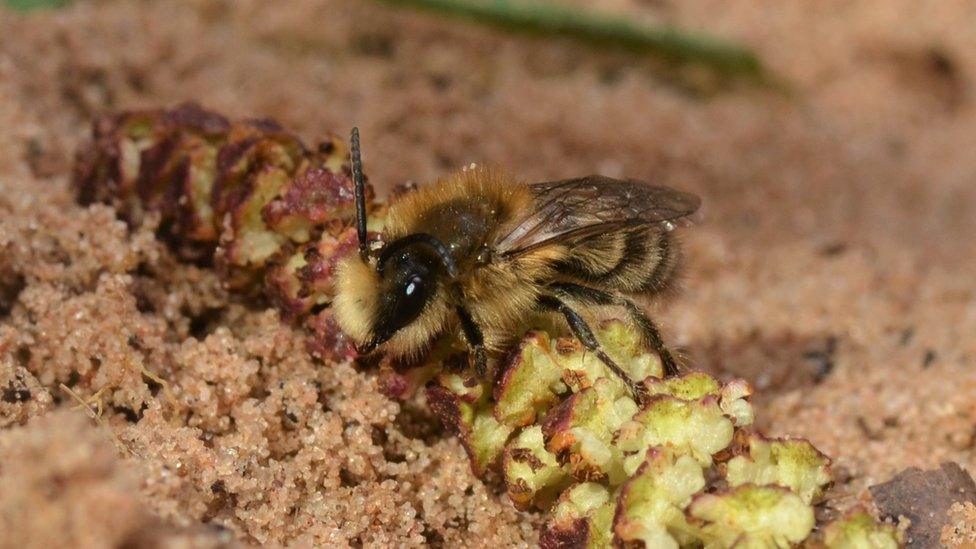Beekeepers 'run out of equipment' as swarms rise
- Published

Beekeepers at Warwick University say they are so busy collecting bee swarms, they have run out of equipment
Beekeepers say they have been running out of equipment to catch a rise in bee swarms after a bout of warm weather.
A long and cold spring followed by rising temperatures means larger swarms are now searching for new hives, University of Warwick experts say.
Members of the public are being advised not to panic if they spot the honeybees and instead call professionals to move them.
"It has been a very unusual year for swarms," said beekeeper Alan Deeley.
Mr Deeley, who is based at the university, added: "We have collected so many swarms, I have run out of equipment."
The bee expert said this year had been much busier than usual, with swarm season starting a month earlier in April.
Mr Deeley said: "Last summer we had a very good good year for the bees - they went into the winter very strong.
"It was then a long, cold, wet spring which meant the bees were confined to the hive and that is a trigger for them to swarm."

Mr Alan Deeley says a long cold spring followed by warm weather had led to an increase of swarms
Beekeepers will inspect hives once they reach 15C, however at the start of the year, temperatures remained low so they were unable to control the swarms, Mr Deeley said.
"As the weather improved, they just swarmed like mad," he added.
Professor David Chandler, a microbiologist and entomologist at Warwick University said: "We only have honeybees now because of beekeepers.
"There are no wild honeybees in this country because honeybees are affected by a parasitic mite which feeds on their blood - it's an invasive species."

Follow BBC West Midlands on Facebook, external, Twitter, external and Instagram, external. Send your story ideas to: newsonline.westmidlands@bbc.co.uk, external
- Published18 April 2023

- Published18 May 2023

- Published20 May 2023
